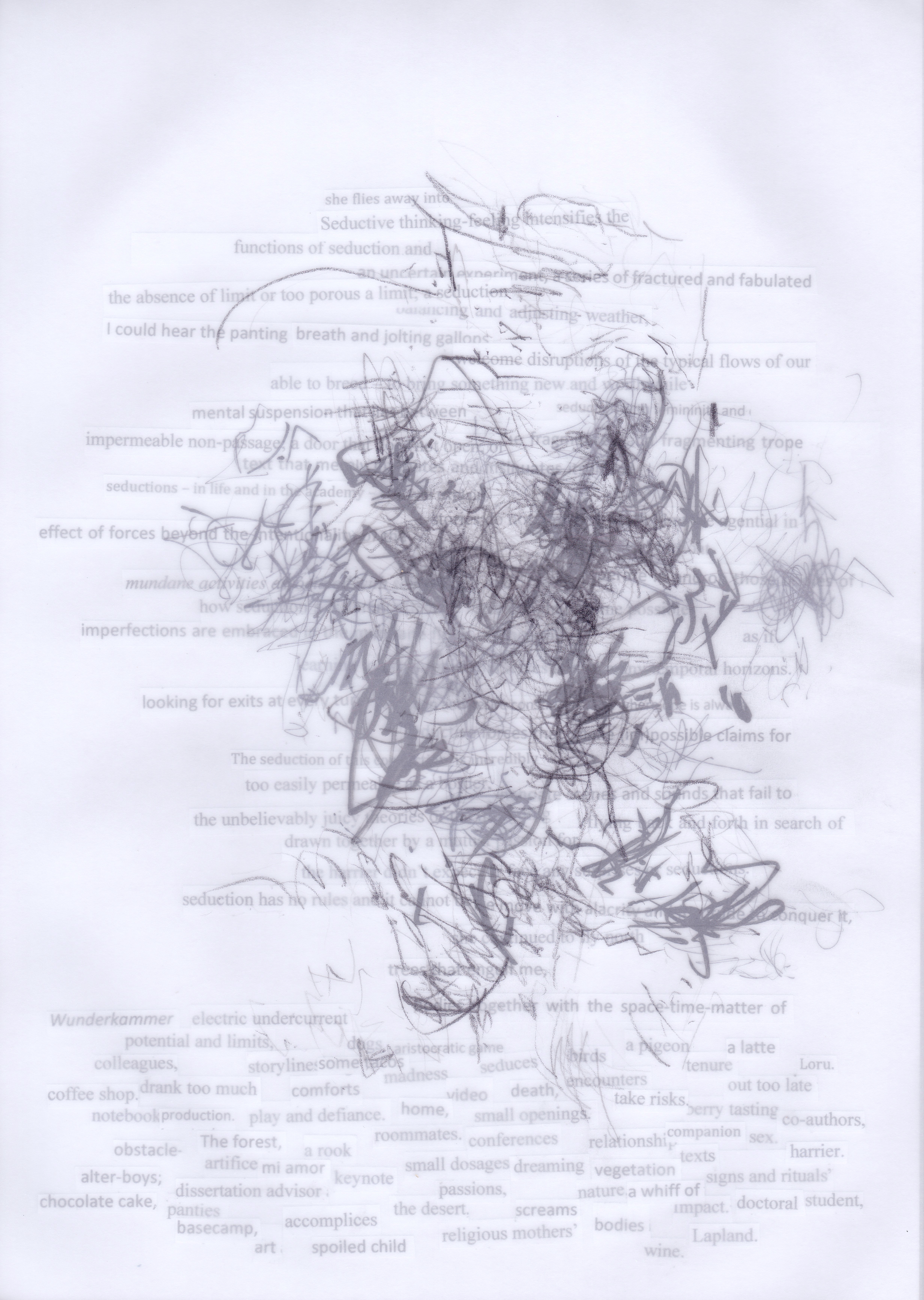Vol. 13 No. 1 (2022): Special issue: Mattering seductions in undisciplined qualitative inquiry

This special issue works with and through seduction in an attempt to explore some of the many ways in which seductive forces shape, sharpen and suspend what we think-do-practice as qualitative inquiry. We offer particular forms of unruly and undisciplined forms of writing inquiry as a set of interventions to open (ourselves) up to and attune to those forces that frame and fashion inquiry. In our writings-practicings here, we aim to explore some of the many ways by which, during processes of seduction, inquiry might become subject-(to)-object-(of) desire when scholars interact intimately with knowledge, doing, and living. In our explorations of seductive scholarship, we hold that seduction also challenges ideas of researcher autonomy and independence as it invokes and conjures a set of forces beyond and outwith the individual. In the becomings of, and coming to, seduction – in those moments where inquiry and knowing ‘remains on the threshold of possibility’ (Pandian, 2019: n.p.) – one is always involved in a teeter, in complex trade-offs whose dividend is only partially in/sight.
Amongst the range of questions that we pose and impose in this special issue, we work with/in the sense and non-sense-ical functions of seduction; of how seduction’s different forces take shape, eke unthought potentials, become to have legitimacy, and transform possibility into academic-writing-matterings. Concomitantly, we ask how such forces may also (and sometimes) ossify processes of inquiry into the probable, the expected and the acceptable. We suggest here that seduction, offers one possibility to work with and through the relationalities embedded in orientations towards, and embodied practicings of, many forms of undisciplined qualitative inquiry.
We suggest that attending to forces of seduction produces a new set of orientations towards those wider knowledge production practice landscapes (researching, teaching/learning, minding, caring, sustaining: the doing-thinking-doings of the academy) that make academic-writing-matter really matter. Attending to and taking seriously the forces of seduction in these ways provides, we suggest, a foothold in (un)thinking those knowledge production architectures that claim their legitimacy in objectivist rationalities, putatively removed from the productive pollutions of seduction.